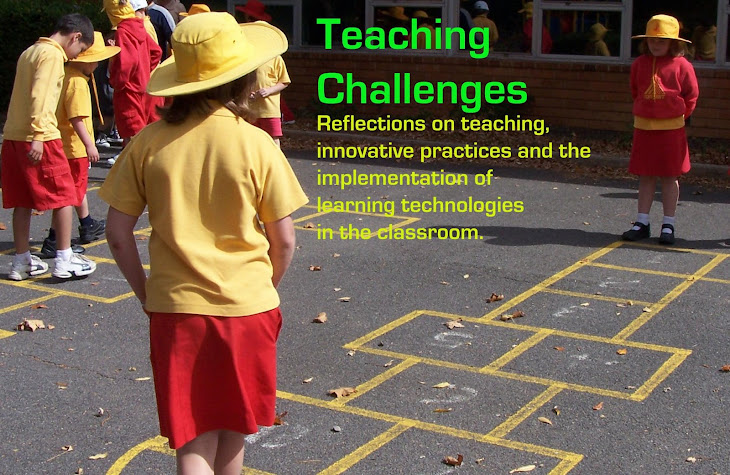Researching and Testing Ideas
Since I last wrote about my journey I have been working at refining my ideas. I'm not one to focus completely on book research first and then shift to classroom research second. I tend to mix the two together and get everyone involved in the journey!
Connecting with other Educators
I've been chatting to people about what I am puzzling over. Having people to listen to my thoughts has helped me to work through what I am reading about and what I am seeing in the classroom. My colleagues are being very encouraging (even though I'm sure they're getting tired of listening to my ramblings). I've made new connections at work in my quest to find other people with an interest, knowledge and experience in the realms of assessment and feedback. I've also found some who may be able to help me work through developing the action research side of things. My colleagues have given me ideas and suggestions for other things I could try.
Using Twitter
Over the years I have developed my Twitter profile to include an extensive list of educators around the world. This is my professional learning network. If I'm to be really honest, I haven't been consistently great with this over the years. While I'd love to do it more, in reality, it does end up being both addictive and time consuming. I also find that I hit information overload quite quickly once I get started. Everyone is sharing great resources that I grab to read later, or feel inspired by in the moment. But I find that I end up with my brain buzzing in too many directions, trying to do too many things, and just can't keep up that sort of momentum. I have to try to find a workable balance. I'm trying to connect more effectively with people in this arena by popping along to Twitter discussions and getting involved with the conversations. By looking at my Twitter feed it's easy enough to pick up on whether there is a discussion happening and to get involved.
#Hashtags
After reading a tweet where someone asked for resources on peer feedback, I realised that I should be using hashtags to find resources about feedback. I did a search on #feedback and found a tweet about the work of Ben Newmark (@bennewmark). His school is trying new things in terms of feedback to students, and while I don’t want to take on board the whole kit and caboodle of what he is doing (particularly as it is designed for high school history), I really do like where he is headed in terms of making feedback meaningful.
— David Carless (@CarlessDavid) October 11, 2016
Dylan Wiliam's Webinars
I found some of Dylan Wiliam's previously recorded webinars online at The Dylan Wiliam Center. I watched these and took some notes as I did so. It was good to hear his view on feedback. The results from studies have shown that feedback can also have a negative impact, thus the reaction of the student should be the focus rather than the feedback itself. I feel this is tied in with my ideas about encouraging student self-reflection in order to apply the feedback, and also providing time for the feedback to be used not just stashed away. Dylan said that the success of the feedback is about the relationship the teacher has with the student and knowing when to push and when to back off. One suggestion Dylan gave for activating students as resources for one another was to use two stars and a wish for peer feedback.
Trying things out
Term 4 started this week and I had my students back for the last two days of the week. Why wait, I say! We got straight into exploring some ideas with feedback. Very soon we are going to begin trialling Seesaw to submit and share classwork and gain feedback from each other. In the lead up to this, I wanted my students to get a sense of why feedback is useful, how we can request feedback from others, how we can give feedback and how we can use feedback.
Austin's Butterfly: Building Excellence in Student Work from EL Education on Vimeo.
I then explained that students would create a drawing of their holiday and that at any point when they wanted feedback they could take a strip of paper to someone they trust and get them to write down something good about their work and something for them to improve. They could then take the feedback and use it to improve their work. They could repeat this as much as they desired.






